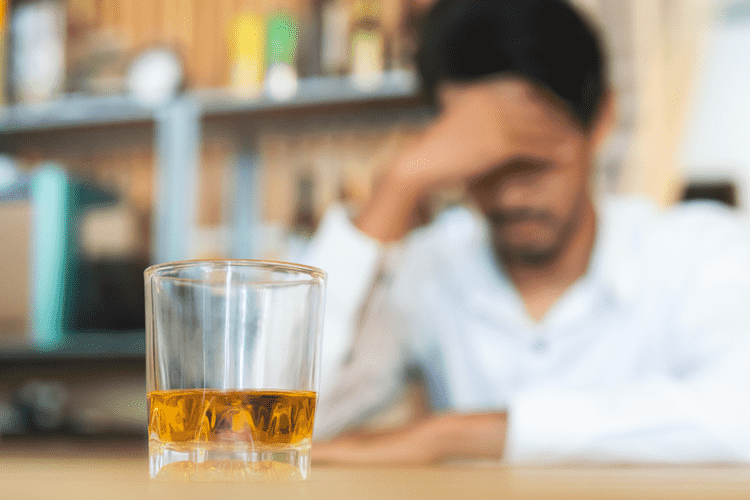Alcohol Intolerance Causes, Symptoms, And Treatment Options
Allergy symptoms are often more painful and uncomfortable than alcohol intolerance symptoms. In rare cases, if untreated, an alcohol allergy can be life-threatening. Alcohol intolerance is caused by a genetic condition in which the body can’t break down alcohol efficiently. Someone with an alcohol addiction who has remained sober for months or years may find themselves drinking again. They may binge drink once or drink for a period of time before getting sober again. It’s important that the person get back on track and resume treatment.
- However, standardized skin testing using different types of alcohol is not currently available.
- The first enzyme turns alcohol into acetaldehyde, which is toxic.
- You shouldn’t attempt to drive or operate heavy machinery while under the effects of alcohol.
- Allergy testing should always be done in a medical setting.
- And these communities make the person with an alcohol addiction accountable and provide a place to turn to if there is a relapse.
So, people are typically born with a tendency for alcohol intolerance, which also runs in groups of people who are more closely genetically related. For example, people of Asian descent tend to have lower levels of ALDH. People with alcohol intolerance may notice one or more of these symptoms after taking a few sips of alcohol. Others might only develop them shortly after finishing 1 or 2 drinks. The best way to live with this condition is to avoid alcohol as much as possible. Avoiding alcohol will allow you to live an active, enjoyable life without unpleasant symptoms.
Sulfite sensitivity
Many of the effects of drinking every day can be reversed through early intervention. Typically, alcohol withdrawal symptoms happen for heavier drinkers. Alcohol withdrawal can begin within hours of ending a drinking session. If you have a pattern of suddenly feeling very sick after consuming alcohol, you may have developed sudden onset alcohol intolerance.
The Surprising Signs Your Body Is Allergic or Intolerant to Alcohol – Newsweek
The Surprising Signs Your Body Is Allergic or Intolerant to Alcohol.
Posted: Sat, 16 Sep 2023 07:00:00 GMT [source]
Occasionally, a doctor may ask a person to consume alcohol in a medical setting and observe any reactions or symptoms. A skin prick test should take place in a medical setting in case of a severe allergic reaction. An alcohol allergy and alcohol intolerance are two different conditions. The immune system usually produces antibodies to fight harmful substances in the body. However, in people with an alcohol allergy, the system mistakenly produces antibodies to attack alcohol following exposure to the substance, triggering various symptoms.
Changes to body mass with age
Regardless of how the addiction looks, someone typically has an alcohol addiction if they heavily rely on drinking and can’t stay sober for an extended period of time. For some people, alcohol misuse results from psychological or social factors. They may drink to calm down or loosen up in social settings.

It should not be used in place of the advice of your physician or other qualified healthcare providers. True alcohol allergy is thought to be rare, while https://ecosoberhouse.com/ is more common. Some people may incorrectly assume they are allergic to alcohol, when in fact they are actually reacting to other components of alcoholic drinks.
Skin prick test
It’s available in preloaded syringes, known as epinephrine auto-injectors (e.g., EpiPen). If your doctor prescribes an epinephrine alcohol intolerance auto-injector, you should carry it with you at all times. Then go to your nearest emergency department for follow-up care.
- When is it common in society, it can be hard to tell the difference between someone who likes to have a few drinks now and then and someone with a real problem.
- Symptoms may occur within seconds or minutes of alcohol exposure and could trigger after exposure to even tiny amounts of the allergen.
- Alcohol intolerance can cause immediate, uncomfortable reactions after you drink alcohol.
- The immune system usually produces antibodies to fight harmful substances in the body.
A person’s tolerance may also change over time due to a decline in body mass in older adults. This may result in higher concentrations of alcohol in the blood and more significant effects from drinking. In some cases, reactions may also result from an allergy to a grain such as corn or wheat in alcoholic beverages. If a person combines alcohol with certain medications, this may also cause a reaction. Alcohol intolerance may cause a person to experience immediate reactions after they drink alcohol, or they may develop it hours after, the day after, or even later in life.
